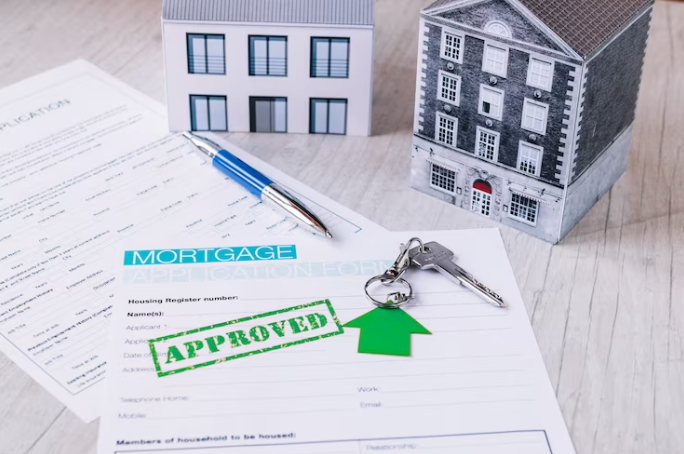Empowering Homeowners with Foreclosure Defense Strategies

Facing the possibility of foreclosure can be an overwhelming and distressing experience for homeowners. However, with the right knowledge and strategies, homeowners can empower themselves to protect their homes and financial future. In this article, we will explore various foreclosure defense strategies and provide valuable insights and practical tips to help homeowners navigate through challenging times. From understanding legal protections to proactive measures, we aim to equip homeowners with the tools they need to overcome foreclosure threats and secure a stable future for themselves and their families.
Table of Contents
- Foreclosure Defense Strategies
- Understanding the Foreclosure Process
- Proactive Communication with Mortgage Servicers
- Seeking Legal Counsel
- Loan Modification and Refinancing
- Negotiating with Lenders
- Asserting Legal Defenses
- Loan Repayment Assistance Programs
- Documenting Your Finances
- Mediation and Alternative Dispute Resolution
- Stay Informed about Foreclosure Prevention Legislation
- Frequently Asked Questions (FAQs)
- Q1. How long does the foreclosure process typically take?
- Q2. Can bankruptcy help stop foreclosure?
- Q3. What is a short sale, and how does it work?
- Q4. Can I defend against foreclosure if I am behind on mortgage payments?
- Q5. What happens after foreclosure?
- Q6. Can I save my home if I receive a foreclosure notice?
- Conclusion
Foreclosure Defense Strategies
When it comes to defending your home against foreclosure, knowledge is power. By understanding your rights, options, and the various strategies available, you can take proactive steps to safeguard your home and financial well-being. Let’s delve into empowering foreclosure defense strategies that can make a significant difference in your fight against foreclosure.
Understanding the Foreclosure Process
Before diving into defense strategies, it is crucial to have a clear understanding of the foreclosure process. Familiarize yourself with the key stages, legal timelines, and requirements involved in the foreclosure process. By gaining knowledge about how the process works, you can effectively navigate the legal landscape and make informed decisions.
Proactive Communication with Mortgage Servicers

Maintaining proactive communication with your mortgage servicer is vital to keeping them informed about your financial situation. If you are facing difficulties, communicate your challenges promptly and openly. Often, mortgage servicers have programs in place to assist struggling homeowners and may be able to provide temporary relief or work out alternative arrangements.
Seeking Legal Counsel
When facing the daunting prospect of foreclosure, consulting an experienced foreclosure defense attorney can be immensely valuable. A skilled attorney can guide you through the legal complexities, help you understand your rights, and assist in formulating a solid defense strategy. They can review your case, identify potential defenses, negotiate with lenders, and represent you in court if necessary.
Loan Modification and Refinancing
Exploring loan modification and refinancing options can provide a lifeline for homeowners struggling to keep up with mortgage payments. These options involve renegotiating the terms of your loan to make it more affordable and manageable. By working with your lender, you may be able to secure lower interest rates, extended repayment periods, or even a reduction in the principal amount owed.
Negotiating with Lenders

Open lines of communication with your lender are essential in foreclosure defense. Initiate conversations with your lender to explore alternatives to foreclosure. Present your financial situation, demonstrate your commitment to resolving the issue, and propose mutually beneficial solutions. Lenders may be willing to consider options such as forbearance agreements, repayment plans, or short sales.
Asserting Legal Defenses
Depending on your specific circumstances, there may be various legal defenses you can assert to challenge the foreclosure proceedings. These defenses could include lender misconduct, improper documentation, violations of lending laws, or predatory lending practices. Consulting with a foreclosure defense attorney will help you identify and assert the appropriate legal defenses based on your unique situation.
Loan Repayment Assistance Programs
Explore loan repayment assistance programs offered by government agencies, nonprofit organizations, and local initiatives. These programs are designed to help struggling homeowners by providing financial assistance, counseling, and support services. They can offer valuable resources and guidance to navigate the foreclosure process and mitigate the impact on your financial stability.
Documenting Your Finances
Maintaining detailed records of your finances is crucial when defending against foreclosure. Keep track of all correspondence, payment receipts, and relevant financial documents. Documenting your financial situation thoroughly will help you build a strong case, present your position effectively, and challenge any inaccuracies or discrepancies that may arise during the foreclosure process.
Mediation and Alternative Dispute Resolution
In some jurisdictions, mediation and alternative dispute resolution programs are available to homeowners facing foreclosure. These programs provide an opportunity to negotiate with lenders and find mutually acceptable resolutions outside of court. Mediators facilitate discussions between homeowners and lenders, aiming to reach agreements that can help homeowners retain their homes.
Stay Informed about Foreclosure Prevention Legislation
Legislation regarding foreclosure prevention and homeowner rights can change over time. Staying informed about the latest developments in foreclosure law and regulations is crucial. Subscribe to reputable sources, consult legal professionals, and join local homeowner advocacy groups to stay up to date with new laws, potential relief programs, and emerging foreclosure defense strategies.
Frequently Asked Questions (FAQs)
Q1. How long does the foreclosure process typically take?
A. The foreclosure process duration varies depending on the jurisdiction and individual circumstances. It also depends on whether it is a judicial foreclosure or a non-judicial foreclosure.Consult with a foreclosure defense attorney to discuss your unique situation or research your local laws to understand the specific timeline in your area.
Q2. Can bankruptcy help stop foreclosure?
A. Depending on how many other bankruptcies you have filed in the past, filing for bankruptcy can temporarily halt foreclosure proceedings through an automatic stay. It provides an opportunity to reorganize finances and develop a plan to catch up on missed mortgage payments. However, it is crucial to consult with a bankruptcy attorney to understand the implications and determine the best course of action.
Q3. What is a short sale, and how does it work?
A. A short sale involves selling the property for less than the outstanding mortgage balance with the lender’s approval. It can be an alternative to foreclosure, allowing homeowners to avoid the negative consequences of foreclosure and satisfy the debt. However, short sales require lender consent and careful negotiation.
Q4. Can I defend against foreclosure if I am behind on mortgage payments?
A. Yes, even if you are behind on mortgage payments, you can still mount a defense against foreclosure. Seeking legal counsel, exploring loan modification options, negotiating with lenders, and asserting legal defenses are all strategies that can be employed to protect your home.
Q5. What happens after foreclosure?
A. After foreclosure, the homeowner loses ownership of the property, and it becomes bank-owned or goes up for sale at an auction. It is important to be aware of the potential consequences of foreclosure and explore all available defense strategies to prevent this outcome.
Q6. Can I save my home if I receive a foreclosure notice?
A. Receiving a foreclosure notice does not mean all hope is lost. Act promptly, seek legal counsel, and explore the various foreclosure defense strategies available to you. With the right approach and proactive measures, you can potentially save your home from foreclosure.
Conclusion
Foreclosure defense requires a comprehensive approach that encompasses legal knowledge, proactive steps, and strategic decision-making. Foreclosure can be a daunting experience, but homeowners have the power to protect their homes and financial future by employing effective foreclosure defense strategies. By understanding the foreclosure process, seeking legal counsel, exploring loan modification options, and staying informed about available resources, homeowners can navigate through challenging times and emerge with a secure future. Remember, it is crucial to act promptly and take proactive steps to empower yourself and safeguard your home.





